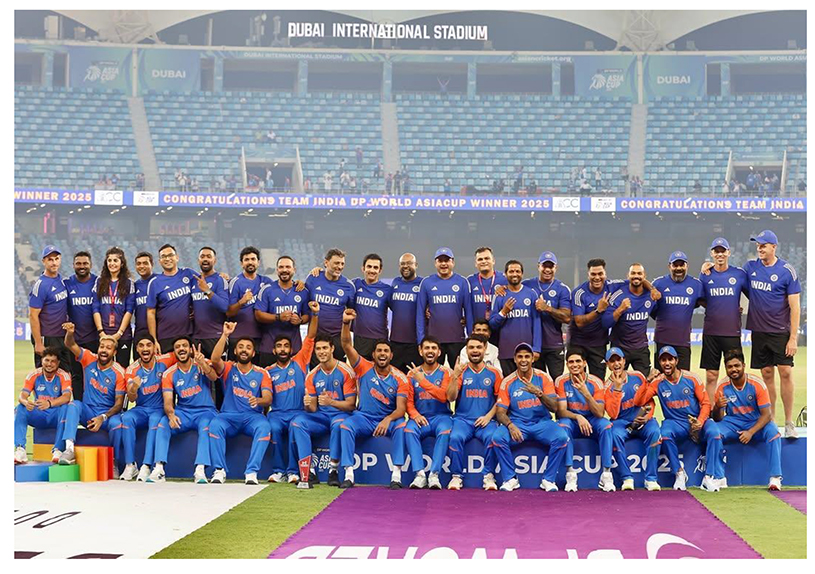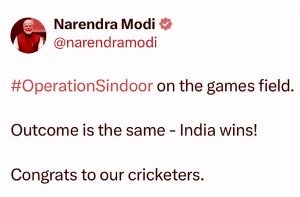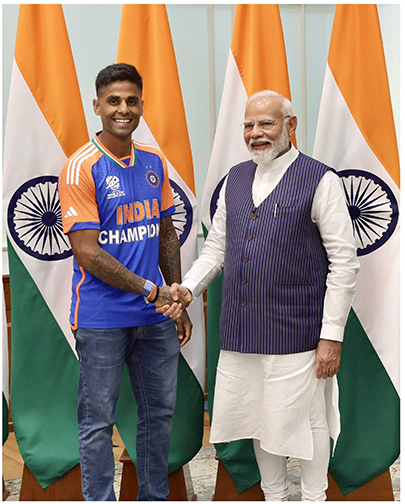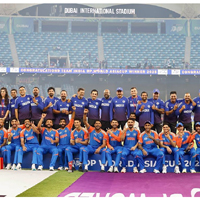Nine-Time Champions! India Crushes Pakistan to Reign Supreme in Asia

On 28 September 2025, India etched another glorious chapter in its cricketing history by clinching its **ninth Asia Cup** title, defeating Pakistan by 5 wickets in a tense final at the Dubai International Cricket Stadium. This victory not only extended India’s record as the most successful team in Asia Cup history, but it also underscored its dominance over regional rivals.
The Final & India’s Road to the Title
In the final, Pakistan posted 146 in 19.1 overs. India’s chase was far from smooth: at one point the top order had crumbled to 20/3. But Tilak Varma’s calm, unbeaten 69 off 53 balls held the innings together, and a vital 60-run partnership with Shivam Dube pushed India ahead. ([The Kuldeep Yadav’s 4 wickets (4 / 30) helped dismantle Pakistan’s batting lineup. ([The Economic Times][5]) Rinku Singh, remarkably, struck the winning boundary off the only ball he faced in the entire tournament.
Prior to the final, India had been consistent throughout the tournament. In the group and Super Four stages, India defeated Pakistan in all their three meetings, asserting their supremacy in the India–Pakistan rivalry in this edition. In one of the key Super Four matches, India edged Sri Lanka in a Super Over encounter after both sides tied in the regular 20 overs.
In the tournament as a whole:
- The 2025 Asia Cup was held in the UAE from 9 to 28 September, in T20 format.
- Eight teams participated (the five full Asia cricketing nations plus UAE, Oman, and Hong Kong)
- India’s Abhishek Sharma was the Player of the Series and scored the most runs (314).
- Kuldeep Yadav claimed the most wickets (17).
The High-Octane Final
The build-up was electric: India vs Pakistan for the third time in the tournament, this time for the title. Dubai’s stadium was a sea of blue and green, the tension almost unbearable.
Pakistan Batting Collapse: Restrained to 146 runs, Pakistan’s middle-order was undone by India’s spin trio.
India’s Chase: At 50/3, nerves crept in, but Tilak Varma’s unbeaten 69 steadied the innings. With Suryakumar Yadav guiding the team, India crossed the line with 5 wickets in hand, clinching their ninth Asia Cup crown.
It was not just a victory, it was a statement — a triumph carved out of grit and nerve, sending millions of Indian fans into raptures. The night in Dubai will be etched in memory as one where cricket rose above sport, becoming a surge of national pride and unshakable dominance over the arch-rivals
Operation Sindoor: Politics Meets Cricket

But this wasn’t just sport. The shadow of Operation Sindoor—India’s military action after the Pahalgam incident—loomed over the tournament. Prime Minister Narendra Modi directly tied the cricket victory to military success, declaring: “Operation Sindoor on the games field. The outcome is the same—India wins!”
Prime Minister Narendra Modi celebrated the win in a striking post on X (formerly Twitter), writing:
“#OperationSindoor on the games field. Outcome is the same – India wins! Congrats to our cricketers.”
By invoking “Operation Sindoor,” a reference to India’s earlier military action following tensions with Pakistan earlier in the year, Modi framed the Asia Cup triumph as piggybacking on national resolve and strength. His congratulatory message quickly went viral, with widespread social media traction.
Prime Minister Modi’s congratulatory message on social media not only celebrated India’s victory but also referenced Operation Sindoor, prompting a response from Indian captain Suryakumar Yadav.
“It feels good when the country’s leader himself bats on the front foot; it felt like he took the strike and scored runs. It was great to see, and when the sir is standing in front, then definitely the players will play freely. The most important thing is that the whole country is celebrating. When we go back (to India), it will feel good, and we will get more inspiration and motivation to do well,” Surya expressed while speaking to ANI.
For many, this transformed the Asia Cup final into a symbolic extension of geopolitical rivalry. Every six, every wicket carried a weight far beyond runs and scorecards.
Trophy Controversy: When India Said “No”
Just when fans thought the story was over, the post-match ceremony turned explosive.
India refused to accept the trophy from Interior Minister of Pakistan Mohsin Naqvi who also happened to be ACC president citing his anti-India social media posts and provocative remarks following the Pahalgam attack. The Indian team had already avoided handshakes with Pakistan’s players throughout the tournament, and this was the ultimate snub.
Naqvi refused to hand over duties to a neutral official, resulting in a one-hour standoff. Finally, the trophy and medals were taken away, leaving India to celebrate without hardware. It was a surreal image—champions without a trophy.
Captain Suryakumar Yadav lashed out at Naqvi, while the BCCI promised a strong protest at the upcoming ICC summit. The incident dominated headlines, sparking debates on whether sport could ever be separated from politics in the subcontinent.
Stars of the Tournament
 Abhishek Sharma (Opener)
Abhishek Sharma (Opener)
- Scored 314 runs, the highest in the tournament.
- Named Player of the Series for his consistent attacking starts.
Tilak Varma (Middle-order batsman)
- Anchored India’s chase in the final with an unbeaten 69 off 53 balls.
- Provided composure under pressure, emerging as India’s new finisher.
Kuldeep Yadav (Spinner)
- Tournament’s leading wicket-taker with 17 wickets.
- Produced a match-winning spell of 4/30 in the final against Pakistan.
Suryakumar Yadav (Captain)
- Led the side with bold field placements and batting depth choices.
- Credited for inspiring confidence in younger players like Tilak and Abhishek.
Rinku Singh (Finisher)
- Played only one ball in the entire tournament but hit the winning boundary in the final.
- Became a symbol of India’s calm finishing under pressure.
Significance & Legacy
This ninth Asia Cup title further cements India’s dominance in continental cricket. No other country has matched that many Asia Cup wins. That consistency across both ODI and T20 editions is a hallmark of India’s depth, adaptability, and talent pipeline.
The 2025 edition will be remembered not only for the cricketing thrill in close finishes, Super Overs, and shining individual performances, but also for how politics and sport intermingled in high-stakes contests. The India–Pakistan rivalry, always loaded, carried fresh tensions into every meeting.
Tilak Varma’s composed batting, Kuldeep’s decisive spells, India’s unbroken run against Pakistan, and the sheer nerve to chase even after early collapse all add to the narrative of a championship side. The decision to refuse the trophy from Naqvi introduced controversy, but also underscored how geopolitical undercurrents can influence sporting pageantry.
In sum, India’s 9th Asia Cup win is not just a record in the ledger — it’s a testament to consistency, mental strength under pressure, and the intertwined nature of sport, identity, and politics in the subcontinent.

















